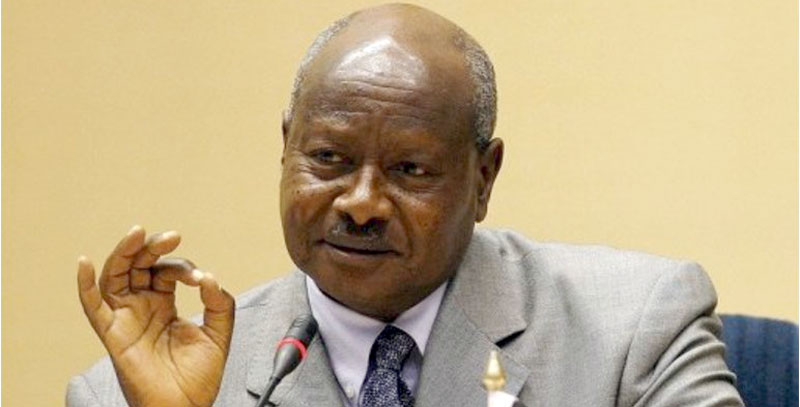Columnists
What is Uganda’s problem?
Citing 11 factors as bottlenecks hindering Uganda’s socio-economic transformation is a debate stopper. We need a framework that focuses us on the most important factor!
Ugandans love conversations. We love talking. It is in Uganda where people call radio to send greetings to a friend they are with or “to all the listeners” using airtime traded for food. Most of the businesses that drive Uganda’s economy — mobile telephony and social media, FM radios, bars, parties and politics — are those that facilitate talking.
My own graduate research found that about 57% of Ugandan households substitute critical family expenses like food with mobile phone services. That is, in every 10 Ugandans you meet talking or chatting on mobile phones, 6 of them have chosen to reduce the portion spent on food purchases and use the savings for airtime/data purchase.
My graduate research was inspired by a young lady I will never forget. She called one of the FM radios and said, “I am Rachael from Wobulenzi; I want to send greetings to my boyfriend with whom I am seated here on our bed.”
The research further revealed that “beeping” or “flashing”– a practice of swiftly dialing a number and hanging up before the person on the other end of the line receives the call — was invented here in Uganda. The goal of the beeper is to signal the person at the other end of the line that the beeper wants to talk but lacks airtime and therefore ‘ring back’.
Yet most Ugandans no longer want to have conversations on issues that affect their country, except politics. Why the paradox? Why have people that love to talk to the extent of trading food for talking time got tired of talking about problems in their country?
“Is there anything new that we have not talked about?” a group of young men and women asked me when I inquired.
The 11 bottlenecks
Ugandans are bored listening to conversations about what the elite think are Uganda’s problems, yet in their view are symptoms. Mr. President, for some years now you have popularised what you termed as “Africa’s 11 bottlenecks.” These are: ideological disorientation, interference with the private sector, under-developed infrastructure, weak states, fragmented markets, and market access and expansion.
Others include: lack of industrialisation and low value addition, under-development of human resources (lack of education and poor health), under development of agriculture, underdevelopment of services sector such as banking, insurance, and tourism, the attack on democracy and governance, and finally a non-responsive civil service.
Mr. President, the question we need to ask is: Why have those “bottlenecks” persisted in Africa yet other parts of the world have managed to eliminate or at least reduce them? To put it the other way: what exactly causes these bottlenecks? Is it geography? Is it culture? Is it ethnicity? Or it is ignorance of you the leaders of our countries? What is it?
Of course the answer from a lazy analyst would be, “Everything above contributes to the bottlenecks Africa faces.” Well, economists for years have been grappling with the same question: Why some countries such as the U.S., Japan or Germany are stupendously rich and others such as Uganda are horrendously poor, yet God created the entire earth on the same day?
This is the very brainteaser that two celebrated academic researchers, Daron Acemoglu (from MIT) and James Robinson (Harvard University) set out to answer. They engrossed themselves in over 20 years of empirical research to answer this question. It is that research that culminated into one of the bestsellers of our times entitled, “Why Nations Fail,” published in 2012.
Our geography is not bad
In the book, the two researchers interrogated the various hypotheses advanced over centuries to explain the above brainteaser. They looked at the possibility that it is geography causing the dysfunctioning of Africa and other poor societies.
The proponents of the geography hypothesis, right from 18th Century French Philosopher Charles Montesquieu, Prof. Jeffrey Sachs, Jared Diamond and others, had argued that geography impede economic development through three major channels: bad terrain, poor climate, and natural resource curse.
That countries such as Uganda are poor because they are located in the tropics which are breeding places to diseases such as malaria, bad terrine that impede infrastructure and other developments, and also they are resource-rich which breeds violence and bad governments.
However, critics say geography fails to explain a cross-section of country development experiences. For example, it doesn’t explain the differences between North and South Korea, East and West Germany before the fall of the Berlin Wall, Haiti and Dominican Republic, or even between Katwe and Nakasero (in Uganda’s case).
Secondly, evidence shows that there is no enduring connection between climate & economic success. The tropics have not always been poorer than temperate latitudes. At the discovery of the Americas by Columbus, Mexico, Peru & Bolivia were richer than the temperate zones (the present day U.S. and Canada).
It is the “reversal of fortunes”, beginning with the arrival of Europeans, that launched the U.S. and Canada to the path of prosperity as the Americas in the south descended into poverty. India and China were also richer than Australia and New Zealand before the reversal set in.
We are not lazy
In addition, the geography hypothesis cannot answer questions such as: What is so great about Australia’s geography, largely cut off from the rest of the world, with vast swathes of desert and tropics, very sparsely settled with huge transportation challenges? A famous historical account of Australia is called “The Tyranny of Distance” – Acemoglu and Robinson argue.
In Africa, Mauritius has turned into the continent’s biggest success with respect to industrialisation in recent years. What is so much better about Mauritius’s geography? They inquire.
The second hypothesis often cited by economists is culture. That countries with a more individualist culture have more innovation, a higher level of total factor productivity and higher long-run growth than countries with a more collectivist culture.
There also claims that Africans are poor because they lack a good work ethic, believe in witchcraft and magic, or resist new western technologies. Acemoglu and Robinson interrogate all these claims empirically and find no enduring evidence. For example, is the alleged poor work ethic among us, Ugandans or Africans generally, in our DNA? Of course not. So, what causes it?
Some economists have attributed our underdevelopment to ignorance. That leaders and rulers do not know how to make their countries rich. This actually was the idea held by most economists. They cited market failures as one feature of ignorance – that policymakers in poor countries do not know how to get rid of them and heed wrong advice.
Neither are we stupid
Generally, proponents of this hypothesis claim that rich countries are rich because their leaders figured out better policies and successfully eliminated market failures. But empirical studies that tested this hypothesis have found no enduring evidence to this assertion. The average IQ of populations appears to be endogenous, related to the diverse stages of nations’ modernisation, rather than being an exogenous cause of economic development.
Acemoglu and Robinson have argued that it is politics that causes policy disaster and not ignorance. Mr. President, you need to read that book (Why Nations Fail). I have been requesting you to read it since 2012. The authors ably, using empirical evidence, show that leaders like you choose growth-retarding policies not because you are ignorant but for political reasons.
Their argument is that if ignorance was the problem, well-meaning leaders like you would quickly learn what types of policies increased citizens misery and abandon them in favour of those that increase people’s incomes and welfare.
Politics often drive leaders like you to choose bad policies in order to buy political support and sustain your regimes. For example, you have continued to spend loads of money in handouts and/or on unresearched and haphazardly selected projects, despite clear evidence that this style of intervention does not change the situation. You are brilliant man, Mr. President, why do you continue to do such things?
And you are not alone. At independence, Kwame Nkrumah of Ghana, Jomo Kenyatta of Kenya, and many other leaders chose policies that turned out to be a disaster, not because they were ignorant but because they wanted to buy political support.
Bad politics is the problem
Mr. President, the reason Africa is poor is because those of you who have power make choices that create poverty. You get it wrong not by mistake or ignorance but on purpose – for political reasons. You embrace extractive institutions you inherited from colonial governments leading to a manifestation of the iron law of oligarchy (extractive, corrupt and repressive governments and nepotism), all on purpose.
The book, Why Nations Fail, argues that development depends on the existence of “inclusive” political institutions (systems that protect individual rights). These, in turn, give rise to inclusive economic institutions (systems that secure private property and encourage entrepreneurship). The long-term result is higher incomes and improved human welfare.
The main argument of the book is that poor countries, everywhere, are those under “extractive” political institutions (systems that place power in the hands of a few, and result in extractive economic institutions, unfair regulations and high barriers to doing business). Extractive institutions are designed to enrich a small elite, and thus inhibit economic progress for everyone else.
Mr. President, although your eleven bottlenecks sound convincing when considered in isolation, politics has empirically been proven to be the overarching determinant of development. In the search for ways of unpacking the complexity of development, which makes it a debate stopper, economists have come to appreciate the contribution made by Why Nations Fail. It provides a framework.
Mr. President, a framework that says there are 11 factors, each of them hugely important is no framework at all. The power of a framework comes from its ability to focus on the most important element(s) at the exclusion of the rest.
Your main contribution to eliminate the bottlenecks hindering effective socio-economic transformation of Uganda will be one – if you reform our politics by making it more inclusive, developing and allowing institutions to work, and most importantly working on your smooth transition from power.
Comments






















